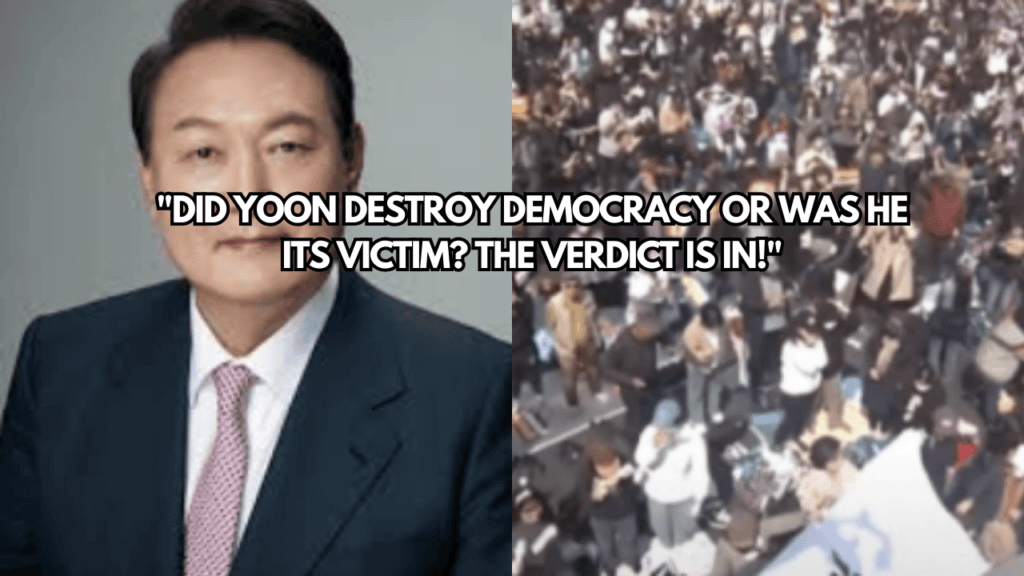Yoon Suk Yeol Impeachment Verdict Shakes South Korean Politics
The Yoon Suk Yeol impeachment verdict has sent shockwaves through South Korea’s political landscape. In a historic decision on April 4th at 11 a.m., South Korea’s Constitutional Court unanimously voted to remove President Yoon Suk Yeol from office. This landmark ruling marks the first successful presidential impeachment in the country’s modern democratic era, triggering significant constitutional implications and raising questions about the nation’s political future.
The Historic Impeachment Verdict and Its Immediate Impact
The Yoon Suk Yeol impeachment verdict was delivered with absolute unity among the justices, who declared simply: “The respondent, President Yoon Suk Yeol, is hereby dismissed.” This decisive action comes after 123 days of turmoil following the declaration of emergency martial law on December 3rd—an event now commonly referred to as the 12·3 incident. The impeachment process formally began when South Korea’s National Assembly voted to impeach President Yoon on December 14th, setting in motion the constitutional mechanisms for his potential removal.
What makes this Yoon Suk Yeol impeachment verdict particularly noteworthy is the unprecedented deliberation period. The court took 38 days after final arguments to reach their decision—the longest such period in South Korean impeachment history. This extended deliberation highlights the complexity and gravity of the case against the president. Political analysts suggest this thoroughness was necessary given the constitutional weight of removing a democratically elected leader.
The immediate consequences of the verdict include the automatic termination of Yoon’s presidential powers and privileges. According to South Korean law, the prime minister will temporarily assume presidential duties until a special election can be organized within 60 days. Financial markets reacted swiftly to the news, with the Korean stock exchange experiencing significant fluctuations as investors assessed the implications of this sudden leadership change.
See also: BTS J-Hope Billboard Hot 100 Success
South Korea Presidential Removal: The Constitutional Process Explained
The South Korea presidential removal process follows strict constitutional guidelines designed to balance democratic principles with legal accountability. When the National Assembly voted for impeachment in December, it required a two-thirds majority—a threshold that was met amid growing public discontent with Yoon’s administration. The case then moved to the Constitutional Court, which had the final authority to determine whether the president had violated his constitutional duties severely enough to warrant removal.
During the South Korea presidential removal hearings, the court examined multiple allegations against Yoon, including abuse of power relating to the martial law declaration. Legal experts note that the court’s unanimous decision indicates the strength of evidence presented against the president. The justices determined that Yoon’s actions constituted a serious breach of his constitutional obligations to uphold democratic principles and protect citizens’ rights.
This South Korea presidential removal case sets a significant precedent for future administrations. It demonstrates that no elected official, regardless of position, stands above constitutional law. Political scientists point out that while the process has caused short-term instability, it ultimately reinforces South Korea’s commitment to democratic principles and constitutional governance.
The international community has closely monitored these proceedings, with neighboring countries and allies expressing concern about potential policy shifts that might follow this dramatic change in leadership. The United States, Japan, and other regional partners have issued statements emphasizing the importance of continued cooperation with South Korea during this transition period.
Public Reaction to the Yoon Suk Yeol Impeachment Decision
The Yoon Suk Yeol impeachment verdict has elicited strong and divided reactions across South Korean society. In Seoul’s downtown areas, thousands of citizens gathered to either celebrate or protest the court’s decision. Those supporting the impeachment view it as a victory for democratic accountability, while Yoon’s supporters condemn what they see as a politically motivated attack on their preferred leader.
Social media platforms have exploded with opinions about the Yoon Suk Yeol impeachment, with trending hashtags reflecting the polarized nature of public sentiment. Younger Koreans, particularly those in their 20s and 30s, have been especially vocal online, sharing their thoughts on what this means for the country’s political future. Many express hope that this constitutional crisis might ultimately strengthen democratic institutions rather than weaken them.
Public opinion polls conducted immediately after the verdict show approximately 58% of citizens supporting the court’s decision, with 32% opposing it and the remainder undecided. These numbers reflect the political divisions that have characterized Yoon’s tenure since his narrow election victory. Political commentators note that healing these divisions will be a primary challenge for whoever assumes leadership following the upcoming special election.
News outlets across the political spectrum have published extensive analysis of the Yoon Suk Yeol impeachment verdict, examining its legal basis and potential long-term consequences. Conservative media outlets have generally been more critical of the decision, while progressive publications have largely supported it as necessary for preserving democratic norms.
See also: Did Hyoyeon Subtly Mention Jessica During ‘Reckless Dining’?
Final Thoughts: What the Yoon Suk Yeol Impeachment Verdict Means for Korea’s Future
The Yoon Suk Yeol impeachment verdict represents more than just the removal of a president—it signifies a critical moment in South Korea’s democratic journey. By upholding constitutional principles even against the nation’s highest office, the courts have demonstrated that South Korea’s democratic institutions retain their independence and integrity. The coming months will be crucial as political parties prepare for the special election that will determine who leads the country forward from this unprecedented situation.
The long-term implications of this Yoon Suk Yeol impeachment verdict will depend largely on how political leaders respond to the challenge. Will they use this moment to bridge divides and strengthen democratic norms, or will political polarization deepen further? The answer to this question will shape South Korea’s domestic politics and international standing for years to come.
As Seoul Crushers, what do you think about this historic decision? Will South Korea emerge stronger from this constitutional challenge, or does this mark the beginning of a more turbulent political era? Share your thoughts in the comments below!






